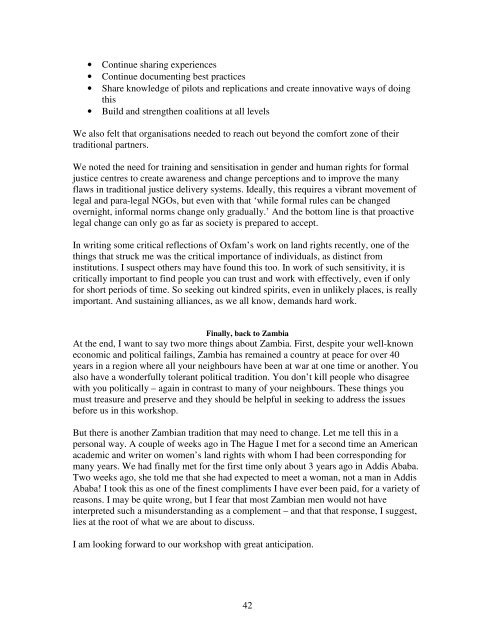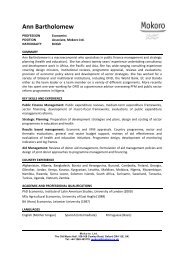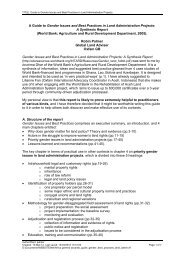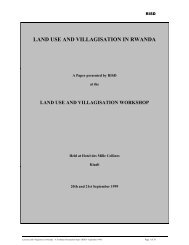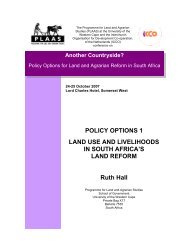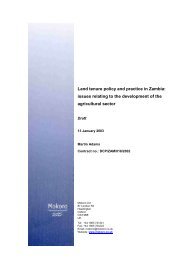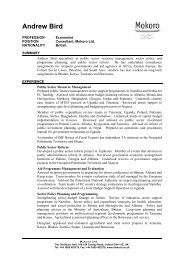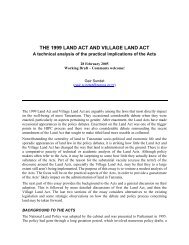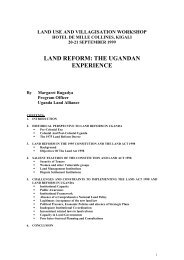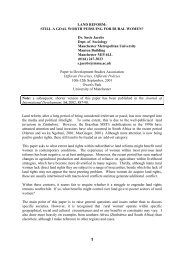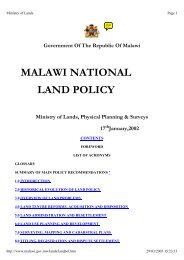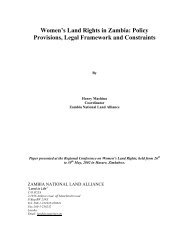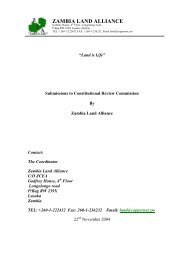Download - Mokoro
Download - Mokoro
Download - Mokoro
- No tags were found...
Create successful ePaper yourself
Turn your PDF publications into a flip-book with our unique Google optimized e-Paper software.
• Continue sharing experiences• Continue documenting best practices• Share knowledge of pilots and replications and create innovative ways of doingthis• Build and strengthen coalitions at all levelsWe also felt that organisations needed to reach out beyond the comfort zone of theirtraditional partners.We noted the need for training and sensitisation in gender and human rights for formaljustice centres to create awareness and change perceptions and to improve the manyflaws in traditional justice delivery systems. Ideally, this requires a vibrant movement oflegal and para-legal NGOs, but even with that ‘while formal rules can be changedovernight, informal norms change only gradually.’ And the bottom line is that proactivelegal change can only go as far as society is prepared to accept.In writing some critical reflections of Oxfam’s work on land rights recently, one of thethings that struck me was the critical importance of individuals, as distinct frominstitutions. I suspect others may have found this too. In work of such sensitivity, it iscritically important to find people you can trust and work with effectively, even if onlyfor short periods of time. So seeking out kindred spirits, even in unlikely places, is reallyimportant. And sustaining alliances, as we all know, demands hard work.Finally, back to ZambiaAt the end, I want to say two more things about Zambia. First, despite your well-knowneconomic and political failings, Zambia has remained a country at peace for over 40years in a region where all your neighbours have been at war at one time or another. Youalso have a wonderfully tolerant political tradition. You don’t kill people who disagreewith you politically – again in contrast to many of your neighbours. These things youmust treasure and preserve and they should be helpful in seeking to address the issuesbefore us in this workshop.But there is another Zambian tradition that may need to change. Let me tell this in apersonal way. A couple of weeks ago in The Hague I met for a second time an Americanacademic and writer on women’s land rights with whom I had been corresponding formany years. We had finally met for the first time only about 3 years ago in Addis Ababa.Two weeks ago, she told me that she had expected to meet a woman, not a man in AddisAbaba! I took this as one of the finest compliments I have ever been paid, for a variety ofreasons. I may be quite wrong, but I fear that most Zambian men would not haveinterpreted such a misunderstanding as a complement – and that that response, I suggest,lies at the root of what we are about to discuss.I am looking forward to our workshop with great anticipation.42


